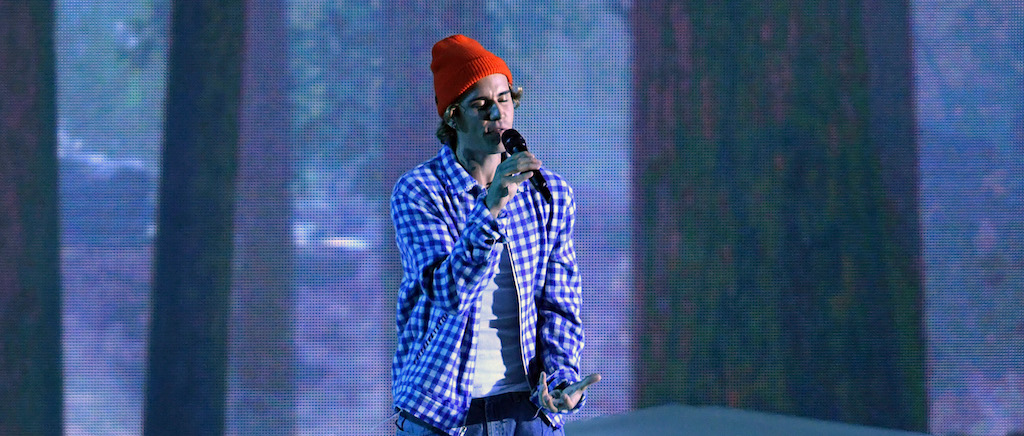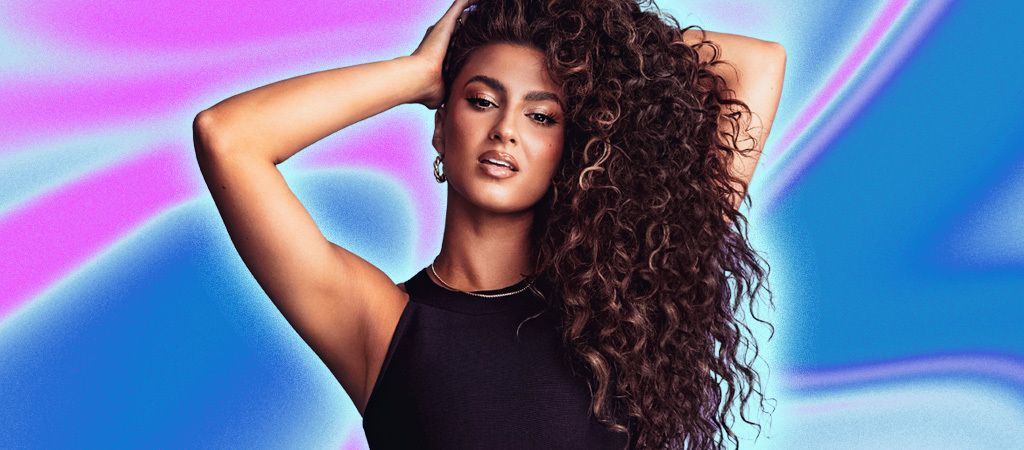
Tori Kelly thought TORI. was finished. Then again, she thought she was certain about a lot of things before she was rushed to the hospital due to blood clotting last July. She didn’t have time to process her brush with mortality until after her Tori EP release and The Take Control Tour. But when she returned home, Kelly was greeted by unresolved emotions in the silence. So, the two-time Grammy winner did what she’d always done. She filled the silence with music and wrote “High Water.”
“I wanted a song that I would’ve sung to myself during that time,” Kelly tells Uproxx the week before the release of TORI., executive produced by Jon Bellion, due out this Friday, April 5. “High Water” sprung from Kelly’s hospitalization, but it ballooned to include a verse about the death of her best friend’s husband, emphasizing her unshakable faith. “It became this bigger thing where I was like, ‘This isn’t even necessarily about me anymore. This feels like a song that I hope could help other people,’” she says.
TORI. is Kelly’s first full-length studio album since 2019, and Kelly’s growth flourishes across its 15 tracks. Over the past five years, especially during this album-making process, Kelly learned that her desire to serve others could only be fulfilled once she fully embraced herself.
“This probably sounds conceited, but TORI. is inspired by Tori,” Kelly says. (She does not sound conceited, by the way. She sounds like a 31-year-old woman with clarity around everything that was required of her to become a self-assured 31-year-old woman.) “It’s me just digging into myself as an artist and thinking, How do I want to present myself? What are some sounds that we’ve never heard from me? What are some things that maybe I’ve been holding back? It feels so authentically me. It’s exciting to be in this place where it’s take it or leave it. This is where I’m at right now.”
Below, Kelly further explained where she’s at right now.
Eight or nine months removed from your medical emergency, what clarity do you have around what that experience forced you to confront?
That whole time was very scary — very sudden — and it felt surreal. It felt like it just happened so fast. It came and went. I was in one state, and then I was out of the hospital, and I felt great. And people would constantly ask, “Are you okay?” Which is awesome. People are so sweet. But it was strange for me because I was ready to go. I was like, “Alright, let’s go. I want to get on tour.” I think I almost wanted it to go away. And through therapy, which we love, I was able to talk through stuff and realize that I have so many people around me who were affected more than me.
Overall, to actually answer your question, I think the clarity that I got is such a cliche phrase that I’ve always said, and we throw it around, but to go through something like that and realize life is so fragile, and you never know what’s going to happen. There’s this general feeling of gratitude — not taking anything for granted and being confident in my decisions. I thought I was doing all those things before, but it just feels like this new level of giving it the best I’ve got and loving people harder.
The album’s tracklisting all feels very intentional. I thought I understood what you were trying to tell me, but I couldn’t actually understand it until now. So, what is this master puzzle?
We made it that way. These songs, most of them were pretty much done, and we decided to let people have a taste of what I was calling “Part I” of the album because it had been a while since my last project. But the whole time, seeing people’s reactions to it — some negative, some positive — which, sidebar, I’m always down for. I actually love it. I would rather you have a really strong opinion one way or the other instead of just saying, “Oh, yeah, it was cool,” and then you forget about it.
Even if it’s negative, at least they’re thinking critically about it at all.
Exactly. You’re forced to think about it. So that didn’t bother me because, the whole time, I was like, “Oh, but there’s more.” Wait until they hear the whole thing. Jon and I — Jon Bellion, who, as you know, produced the whole project — were always so excited about the full body of work. It always felt like “Cut” makes sense when you’ve heard “Thing U Do.” Like, this song makes sense when you hear [another] song. So, like you said, it all really did feel like a puzzle to me. It makes me way more excited to be putting out the full thing because this was always the vision: To showcase all these different sides of me. When you hear it together, I’m hoping that it kind of makes sense because, in my brain, it makes sense. It’s very much me and all my different sides.
Does the experience of releasing an album in your thirties differ from releasing albums in your twenties?
That’s a good question because I actually think this kind of is the first time — at least from my perspective — that I’ve gotten strong reactions. And I think the reason is because, throughout my career, I have placed myself in different genres. I just love so many things. I love gospel music, so I was like, I want to do a gospel project. I’m super sad right now, so this sort of singer-songwriter, heavily guitar-driven album is what makes sense right now. Without realizing it, I gained fans from all different places. I really feel like this is the first time that they’re all kind of looking at this music like, “Okay, what’s she doing next? This is a whole new thing.” On this album, there is a little something from all of these chapters of my life. I think there’s something for everyone. But yeah, this is the first time where I’m like, Ooh, people have opinions.
Has your internal measuring stick for what you consider success changed?
I don’t actually know. There’s one thing, I guess, I’m proud of myself for. I listened back to some of my older songs. I have this song called “Confetti” that I wrote when I was 18 years old. When I listened back to that, it was almost like my younger self was putting her foot down and being like, “Hey, Older Tori, no matter what happens, let this be your compass. Stay true to yourself and your faith, and stay the course.”
I listen to that song, and it’s almost like she was speaking to me in the future because at 18 years old, I hadn’t experienced anything [yet]. I think I was on YouTube at the time, and it was just starting out. But the fact that I hadn’t really experienced fame yet, and I was already singing as if I had — there’s a line, “I’m living for right now / ‘Cause what if tomorrow never comes? / I’m not waiting for the confetti to fall.” So, to answer your question, I don’t think my definition has changed because when I listen to that song, I still feel that way.
Knowing that you revisited that song recently is awesome because on “Same Girl,” you’re singing to your past self.
Yeah, that’s true. I am. We’re having a conversation lately.
To further my nostalgia agenda, I was immediately taken aback by the “Tom’s Diner” interpolation in “Thing U Do” — not to mention Jon Batiste’s background vocals. Craig David’s “Fill Me In” is interpolated in “Missin U,” and “High Water” is a nod to Des’ree’s “You Gotta Be.” Why did you zone in on those three songs as direct influences?
Jon and I were already in that zone. I think “Shine On” was the first song that we did together. That one has that throwback nineties hip-hop [feel]. We took it even further once we did “Cut,” and that opened the floodgates into the whole realm of Y2K. With “Cut,” we were specifically playing off of Timbaland, [Rodney] “Darkchild” [Jerkins] ad-libs. We loved how it sounded, and so we felt like we should probably hit up Timbaland and Rodney Jerkins to get their blessing on it.
We wanted them to hear it and see if they liked it. Timbaland was like, “Yeah, this is great, but I want to do the ad-libs.” So, he hopped on the song, for real, and I was like, “Great, that’s even better.” We did “Missin U” right after that. Every song we did, we were like, “If we’re going to go there, let’s really go there and give these nods to that era.” We were very intentional about still making it feel fresh at the same time.
Can you identify what you had to square away within yourself to where you can feel comfortable standing on a self-titled album?
It really just felt like this album was a statement. Once we had the body of work for weeks, I was just like, “What is the throughline here? What is the theme?” I didn’t go into the process with an album title at all. I knew I was in this more confident headspace and wanted to take my career by the reins, so I was trying to think of phrases or cool themes that could tie everything together. I just kept coming back to, “What if it’s just called TORI. in all-caps? What if the theme is just my self-titled moment?” And I became even more inspired. I was still unsure.
And then, I started thinking about artists who came before me who had these amazing self-titled albums. I thought about Aaliyah, Beyoncé, Janet [Jackson], Diana Ross, and incredibly powerful women in music. When those came out, it was such a defining moment in their careers. So I was like, “I think this feels like that. This feels like that moment for me.” Whatever happens with this music, I just know that that’s what it feels like for me.
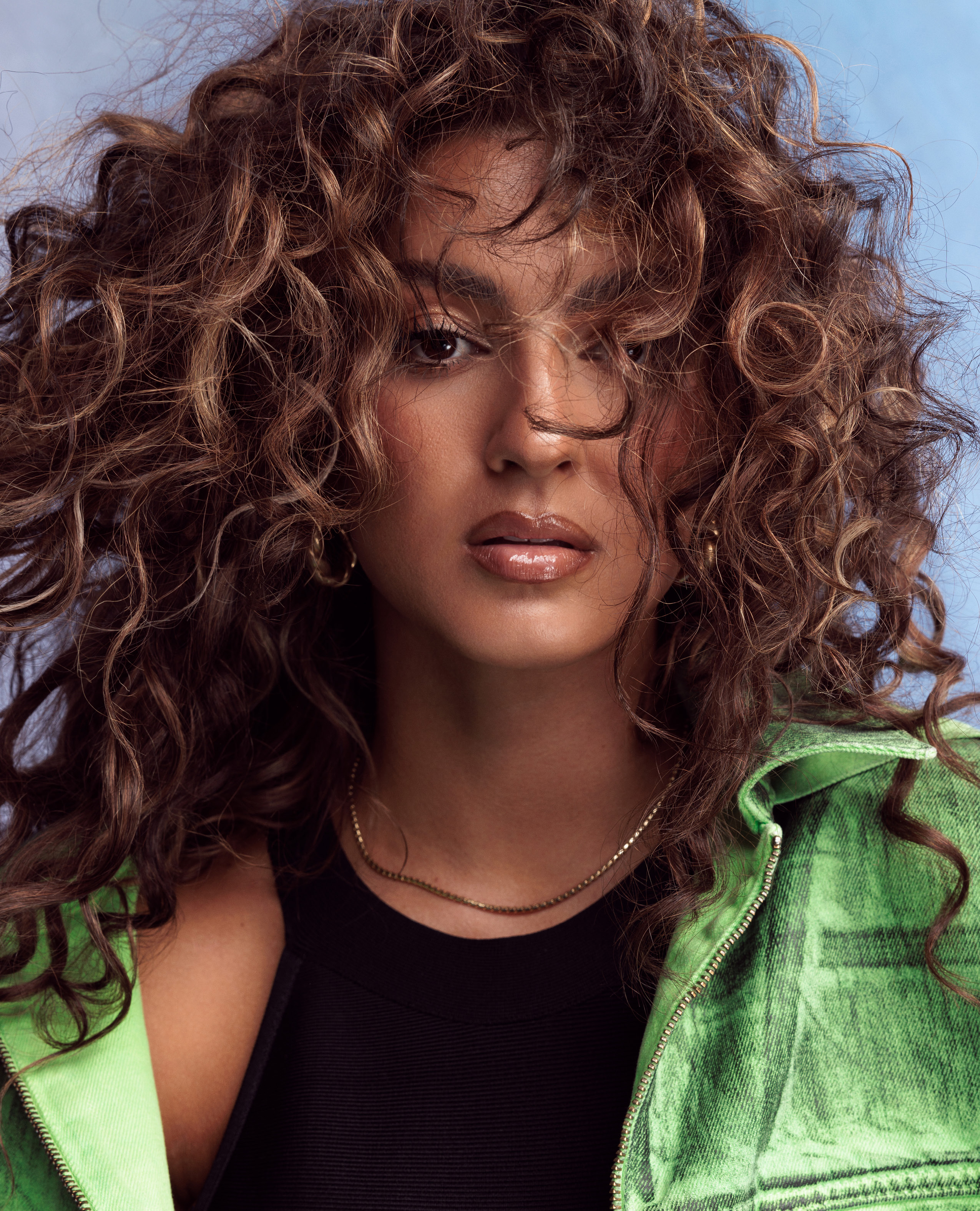
Do you already feel nostalgic for the process of making this album with Jon?
Yeah, I mean, we’ve been talking about getting back in the studio. We already have the writing bug again. We’re talking a year or two ago of us being in the studio, and now that the songs are finally coming out, we’re like, “Let’s do it again. Let’s get back in and build on what we started.” Because it was so fun — just goofing off in the studio. We would create these different characters when I was trying to figure out what sound I wanted for a particular song.
Well, now I have to ask for an example of you coming up with a character for a song.
[Laughs] I’m trying to think of a good one. I always do Britney impressions in the studio. For some reason, I just start singing, “Ooo yeah.” It always started as a joke. Jon would look at me and be like, “No, wait, there’s something there. Let’s keep exploring that.” It would start as this funny thing, and then I would slowly get back to my actual voice, but my approach was different than if I had just sung the song as myself. Those are the little details no one would really know while listening, but I brought something new to this album where I still sound like myself, but there are new tones that you haven’t heard yet.
Is there something that you stumbled upon while making this album that you didn’t know you could do or wanted to do?
When it comes to how I move when I listen to these songs, I think I’ve always loved to dance. I took dance classes when I was seven, and I loved it, but then the music thing took off. I had a viral video of me playing guitar, so people associated me with blonde hair and guitar, and I was like, Alright, cool. I am not going to change anything. Subconsciously. If something’s working, you just run with it.
You know what it is? I thought about this the other day. It’s almost like this music unlocked my younger self. Before the YouTube covers, when I was just dancing in my living room and having fun as a little kid. I’m giving her the album that she wanted. It’s like, you grew up and became this artist, and people think that they know your sound, and they think that they know you, but there are all these different sides of you that you didn’t even realize that you were suppressing. So, let me now give you that dream that you always had. It even gets me a little emotional because her dream was so pure.
I have no regrets in my career whatsoever. But if I didn’t make this album, I actually think later on, I would’ve regretted it because these are those types of songs [that challenged me] like, “Ah, should I put this out? This is a little different than what people are used to.” But I just love them so much. They are a huge part of who I am as an artist.
How many people have the opportunity to become the artist that their younger self would have wanted a poster of in their childhood bedroom?
That’s what it feels like, yeah! This one’s for you, girl.
Having sat for a little bit with everything you pulled off creatively, musically, and vocally with this album and everything that Jon helped you unlock inside of yourself, has the bar changed for what you expect from yourself — or want for yourself — moving forward?
Absolutely. To be honest, this was the first time I’ve ever worked with a creative director in my whole career. I didn’t necessarily pay attention to the presentation of songs before this album. I was just so focused on being in the studio and crafting the songs and the music, and then once it’d be time to promote or do the music videos, I was just kind of saying yes to the people around me. Even with my fashion, I was like, “Sure, I’ll wear that. That’s comfortable. I just want to be comfy.”
Now, I think the expectation for myself is [to] take everything to the next level where the actual songs are super high quality — making sure that I love them — but when it comes time to present these songs, I think my taste is a lot more fine-tuned. Maybe it’s an age thing, too. I know what I like now. I don’t know exactly what that looks like moving forward. I just know that I don’t have time to not be loving every single part of it.
This interview has been lightly edited for clarity and length.

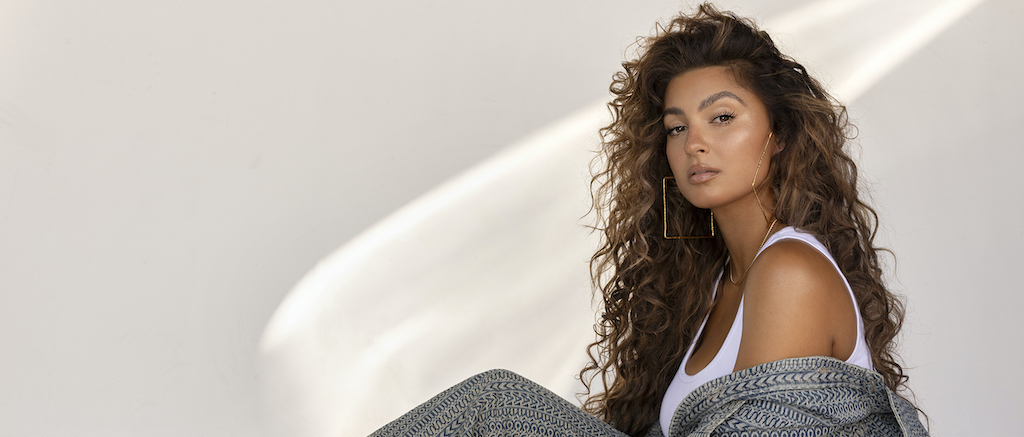
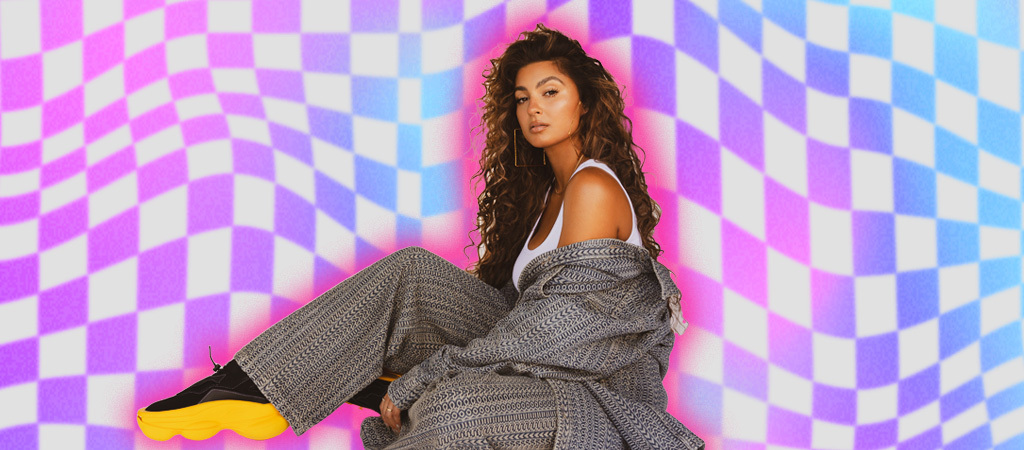
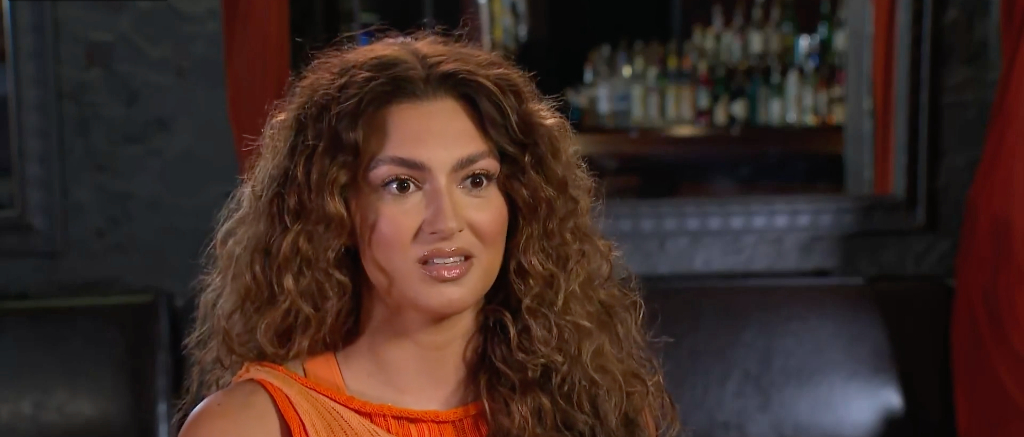
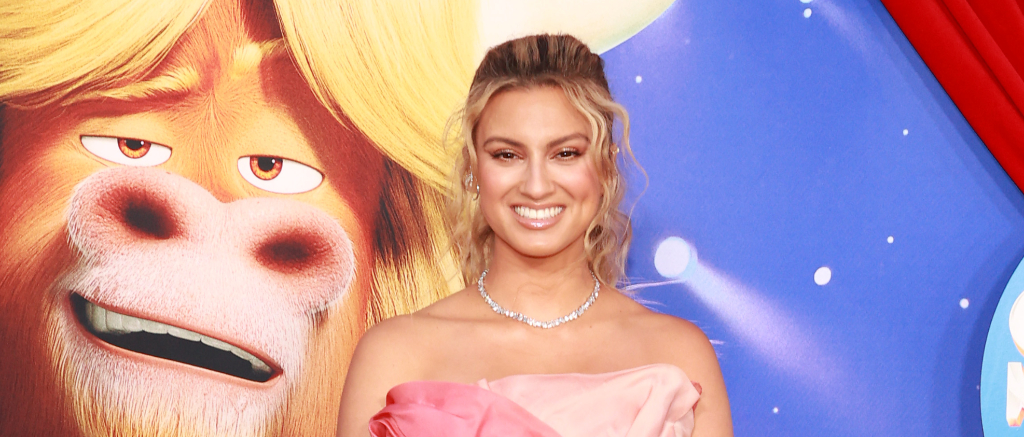
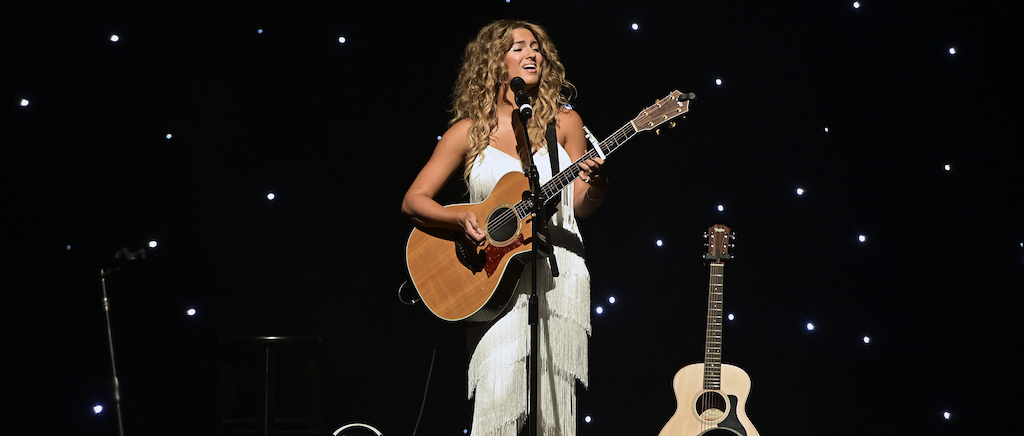





 (@itsKARY_)
(@itsKARY_) 